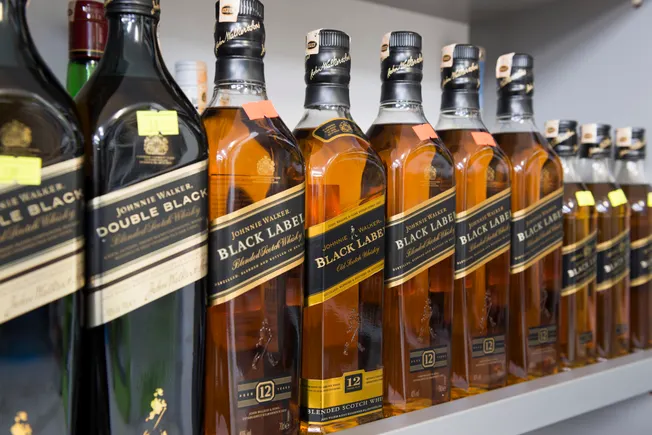Diageo, a global leader in the spirits industry, is facing challenges due to President Donald Trump’s tariff policy. With a variety of prominent brands produced outside the U.S., including Guinness, Johnnie Walker, Bailey’s, Ketel One, and more, Diageo is feeling the impact of the 10% universal tax on imports from Europe. This tariff is increasing costs for alcohol producers at a time when demand is already on the decline.
To offset potential losses from the tariffs, Diageo is considering selling off one of its flagship brands. While the company has not disclosed which brand may be on the chopping block, Chief Financial Officer Lavanya Jhangiani hinted at the possibility during an investor call. The timing and specifics of any potential sale would depend on various factors.
Despite the challenges posed by tariffs and economic uncertainty, Diageo has seen growth in North America. CEO Debra Crew attributed this growth to a strategic move to import products ahead of potential tariffs. To cater to consumers who still prefer premium spirits but are watching their spending, Diageo is focusing on smaller bottle sizes to make their products more accessible.
In addition to adjusting its product offerings, Diageo is making strategic investments to drive growth. The company has invested $415 million in a manufacturing facility in Alabama and created a Luxury Group division focused on high-end brands like Johnnie Walker. Recent moves, such as parting ways with Cîroc Vodka to acquire a stake in Lobos 1707 Tequila, demonstrate Diageo’s commitment to evolving its portfolio to meet changing consumer preferences.
As Diageo navigates the challenges of tariffs and economic uncertainty, the company is positioning itself for long-term success by adapting its portfolio and manufacturing capabilities. By focusing on premium products and strategic investments, Diageo is working to maintain its position as a leader in the global spirits market.


